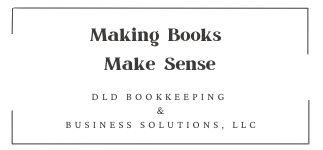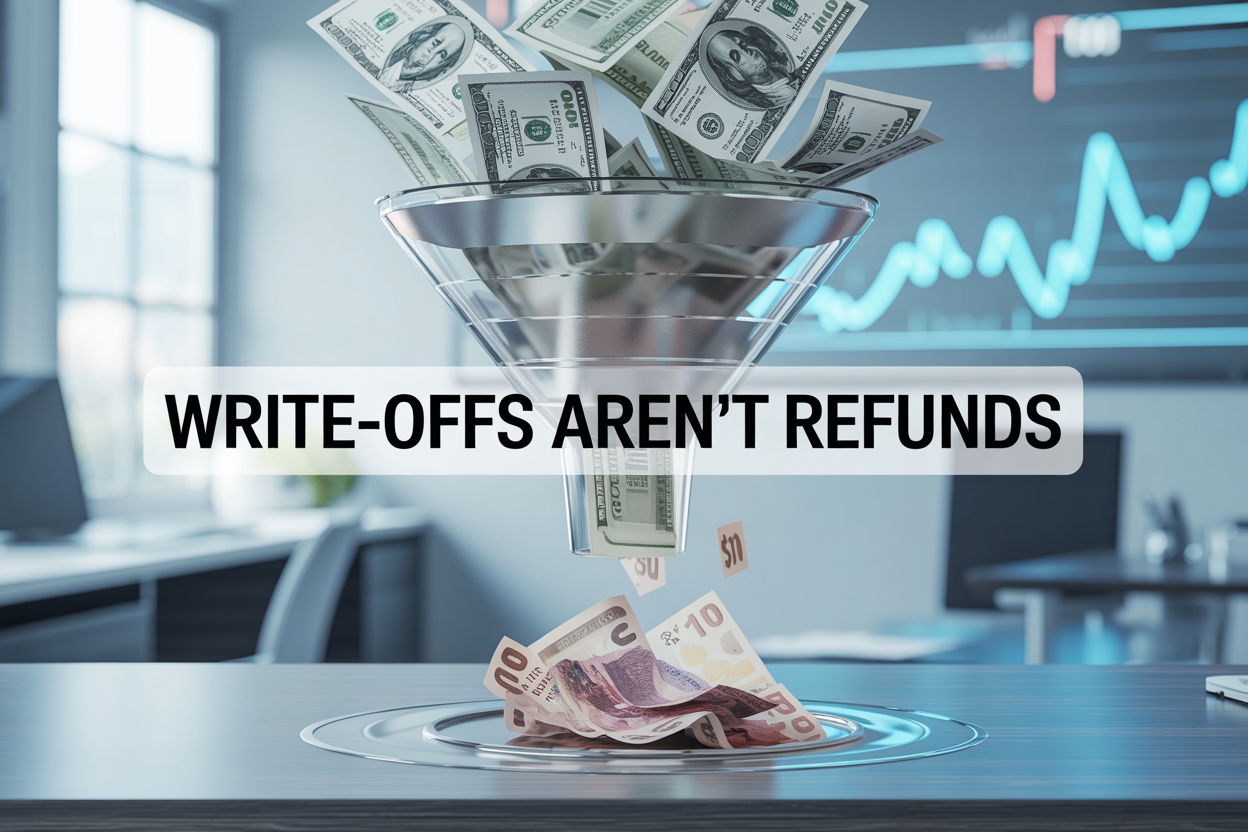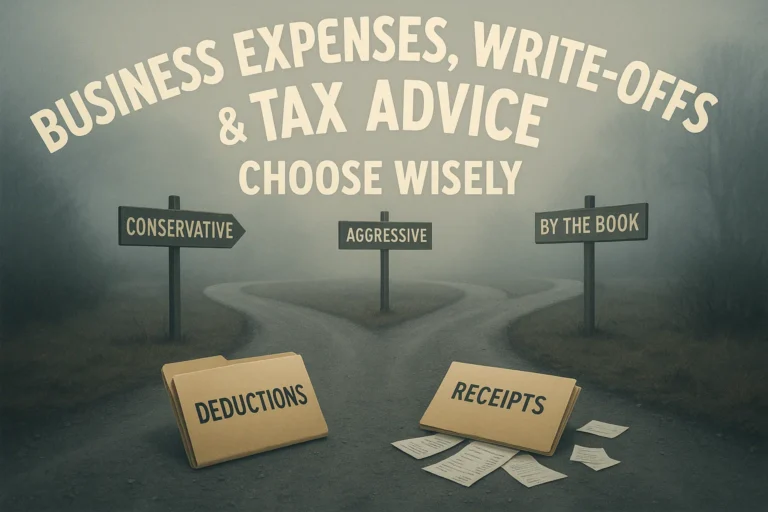Think Tax Write-Offs Give You Money Back? Not Quite—Understanding the Difference Matters!
Bookkeeping is all about tracking all of your income and expenses. You might hear that you can write-off business expenses and think that this is the same as getting the money back, like a refund, or that you are saving the same amount of money you spent. But that’s not quite how tax write-offs work.
Table of Contents
First Rule of Bookkeeping
The first rule is to keep business and personal expenses separate – no commingling. You also want to be cognizant of where you are spending your money.
It is so easy to sign up for another subscription or tool that might make your business easier. And some of those tools are absolutely worth it or even necessary.
But just like in your personal life, the subscriptions add up. The small expenses here and there add up.
Another thing I see, and hear, a lot is “oh well, it’s a business expense, I will write it off”. People seem to think this means you get the money back, like a refund, or you save an amount equal to the business expense. That is not even close to how it works.
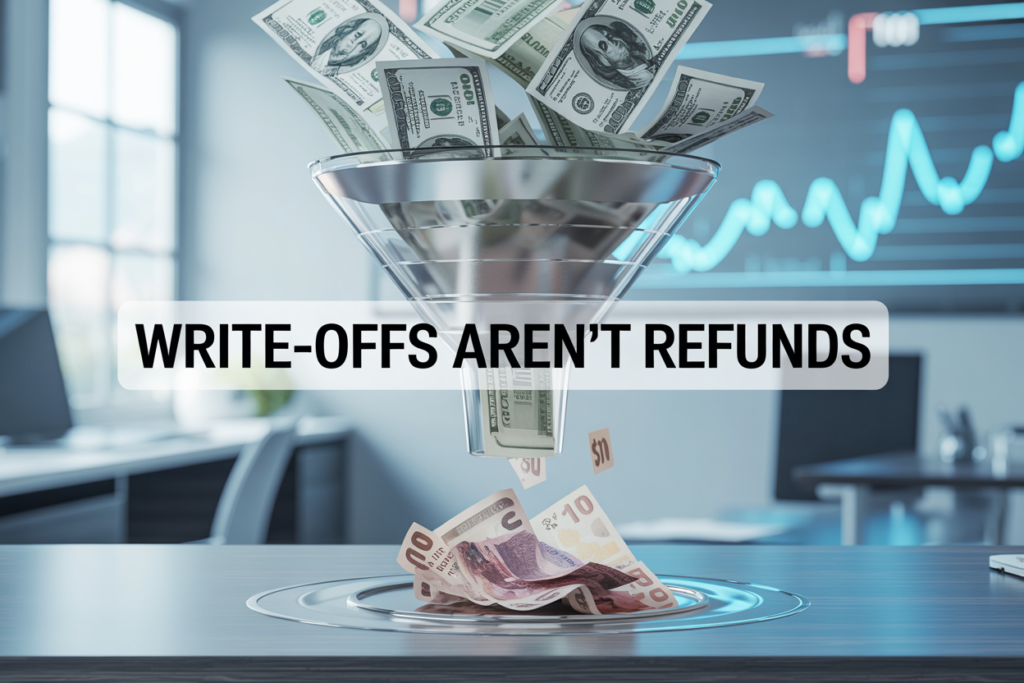
If you want a really funny example of write-offs, the show Schitt’s Creek has an amazing scene about “write-offs.”
In case you are wondering, skin care so you look good as a store owner or even content creator making videos, isn’t going to fly. It’s not a business expense or tax write-off. Don’t pay for it with your business funds or enter the expense in your bookkeeping.
Similarly, you can’t just buy a car and write it off either. Yes, if your business legitimately needs a vehicle, you may be able to expense a vehicle, but in most cases you aren’t going to write it all off at once, it will be depreciated annually.
You can see the official IRS rules for business deductions here https://www.irs.gov/credits-deductions/businesses.
So let’s talk about what a tax write-off means.
When something is tax deductible, it means that we remove it from the total amount of income that you are taxed on.
Let’s say you have $20,000 in income this year. Before we calculate how much you owe for income taxes, we subtract expenses. So let’s say you had $3,000 in expenses.
$20,000 of income minus $3,000 of expenses means your taxable income is $17,000.
To keep things simple for this example, let’s pretend that your tax rate is 10%, this means that the $3,000 reduction in taxable income saved you about $300 in taxes (you now owe $1,700 versus the $2,000 you would owe without deducting expenses).
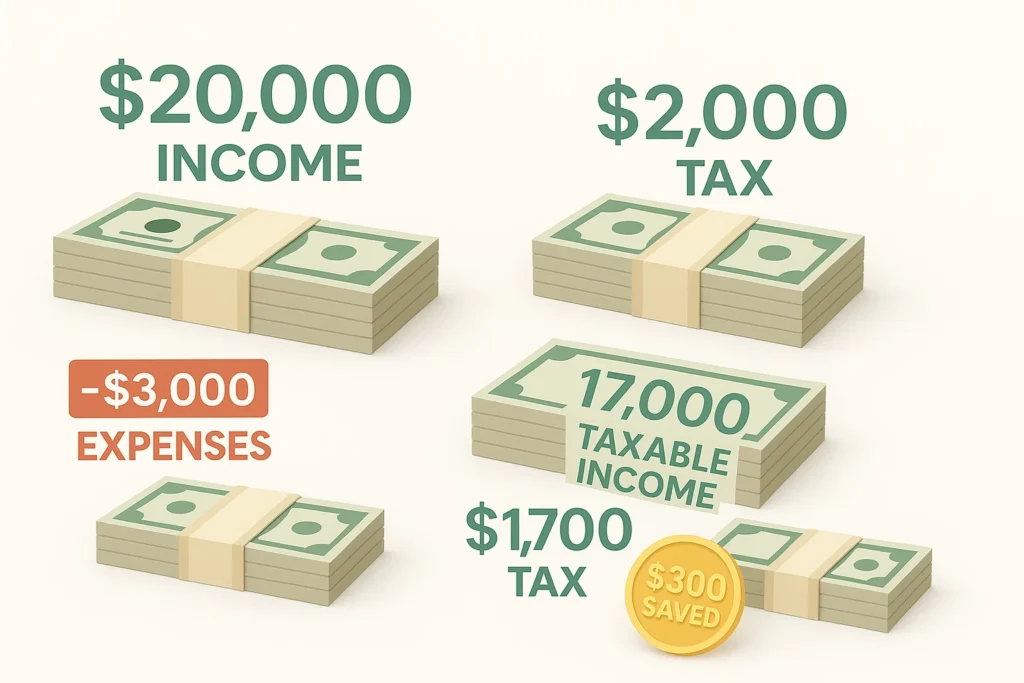
This $300 in savings is WAY less than the $3,000 that you spent to get this “tax write-off.”
Now if you have a higher income, or income from other sources, your tax rate will likely be higher. But even if your tax rate is 24%, $3,000 x 24% is $720. It still doesn’t make sense to unnecessarily spend $3,000 to save $720.
Another thing to keep in mind is not everything is tax deductible.
A lot of people say go out to dinner and talk about business and call it a business expense. That doesn’t fly with the IRS any more.
Even if it is a legitimate business meal with clients, it’s only partially tax deductible.
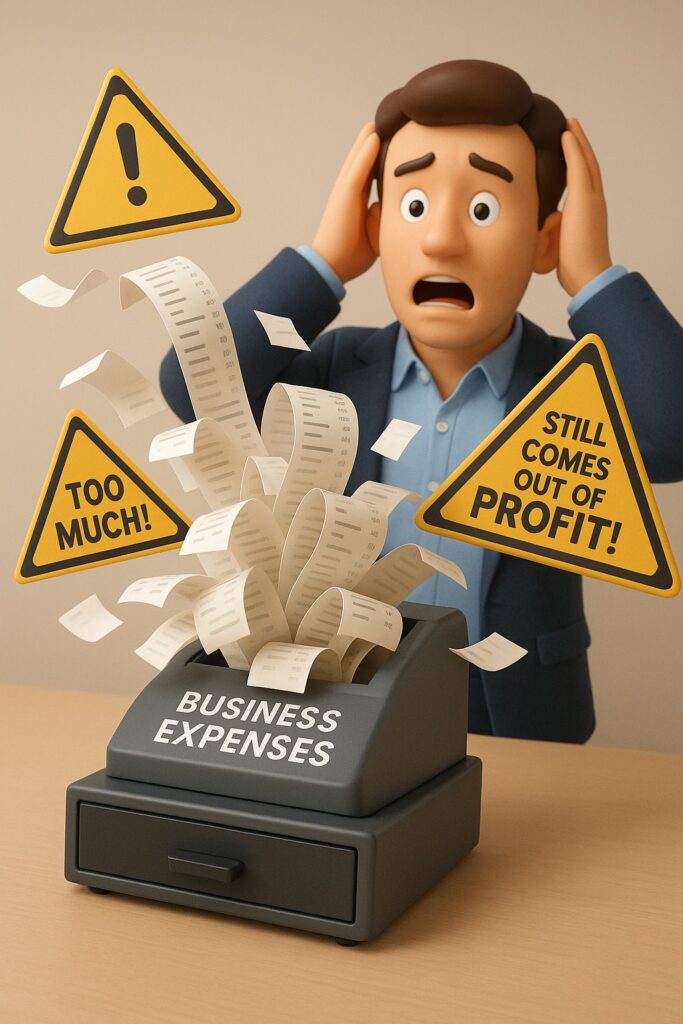
Record All Transactions
So what happens if you have a legitimate business expense that should be on your business’s books, but isn’t going to be tax deductible?
Well, you still want to record the expense in the books because it was a business expense paid for from the business bank account. The expense just won’t be subtracted with other deductible expenses to arrive at your taxable income.
If you need to get your bookkeeping started than check out this post How to Set Up a Simple Bookkeeping System — Even If You Hate Numbers.
If you are worried about how to categorize something in your bookkeeping, there isn’t anything wrong with having a category titled something like “discuss with accountant or tax preparer.” The more organized and prepared you are come tax time, the happier your tax pro will be.
This is why you might hear something like book to tax difference. When the tax return is prepared a form is completed to show the difference between the bookkeeping numbers and the numbers on the tax return.
What you need to know!
What you need to know is to record all the money coming into the business and all the money you spend in or on your business in your bookkeeping.
But remember, only business expenses. We aren’t mixing business and personal expenses in your business books or using your business account for personal expenses. This is one of, if not the most important rule in bookkeeping.
When I look at someone’s bookkeeping, the first thing I look for is personal expenses or commingled bookkeeping.
If you need professional help with your bookkeeping or taxes in the future, I promise this is one of the first things the bookkeeper/accountant/CPA will be looking at also. It will cost you a lot of money to untangle inaccurate or commingled books.
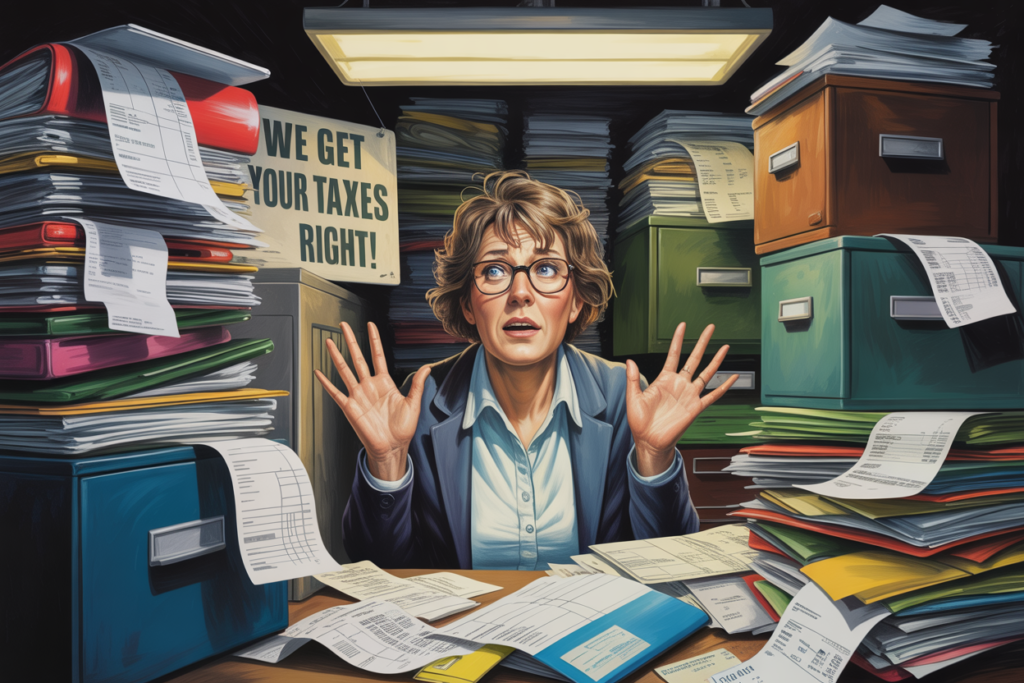
Meals, travel, and miscellaneous expenses are probably some of the most critically reviewed categories by accountants, tax preparers, and auditors.
Also, a final reminder, regardless of who prepares your taxes, you as the taxpayer are ultimately responsible for the results.
